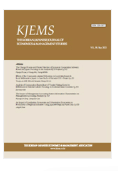Purpose: This study intends to analyze ESG management cases of companies in two countries in a situation where ESG management has a time lag and Korean and Japanese companies are introducing it as an inevitable management rule. In other words, through case analysis of ESG management of Korean and Japanese companies, we intend to provide meaningful implications to companies in both countries by deriving commonalities and differences between them. Research design, data, and methodology: As a case study, this study analyzed representative ESG management companies in Korea and Japan. The ESG management of Japan’s companies Konica Minolta and Kao, and the ESG management of Korea’s BYN Black Yak and financial companies were analyzed. Although the industries are different, many implications can be obtained from the ESG management cases of the two countries. Results: First, consensus on ESG management was spreading among both Korean and Japanese companies. Second, both Korean and Japanese companies showed a high percentage of ESG management focusing on the environment. The number of Japanese companies publishing and publicizing reports that integrate financial and non-financial information has been shown to continue to increase. Implications: Efforts are needed to raise awareness of Korean companies’ ESG management. It was found that Japanese companies are paying attention to management centered on S(society), such as the impact of the corona crisis, response to future market changes, employee health and safety and working style reform due to the COVID-19 outbreak that has spread since last year. In a situation where the corona crisis is prolonged and with Corona is implemented, Korean companies will have to prepare strategy for ESG management while continuously supplementing existing guidelines through identifying global trends and researching companies and investors.
1. 序論
2. ESG
3. 日本のESG
4. 韓国のESG
5. 結論
(0)
(0)
